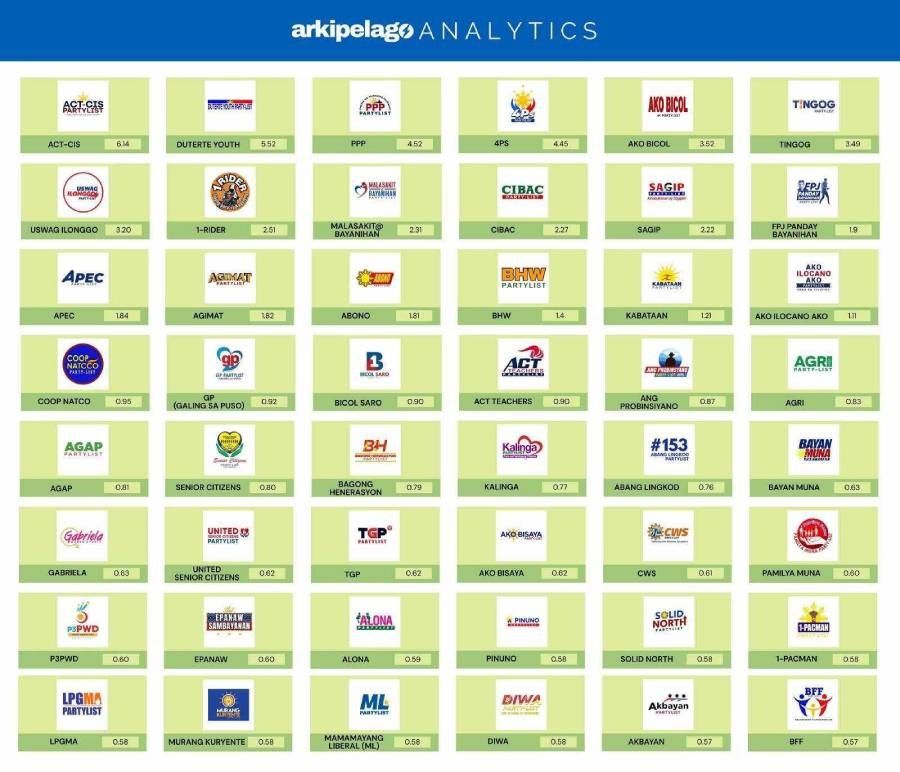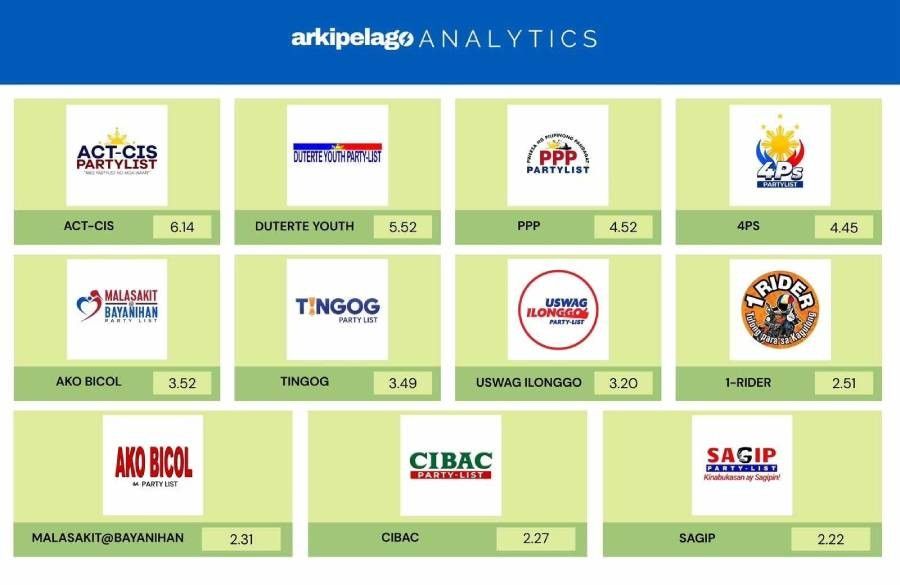
Upgrade to High-Speed Internet for only ₱1499/month!
Enjoy up to 100 Mbps fiber broadband, perfect for browsing, streaming, and gaming.
Visit Suniway.ph to learn
Photo of the House of Representatives' plenary.
Philstar.com / Dominique Nicole Flores
MANILA, Philippines — ACT-CIS, Duterte Youth, Probinsyano Para sa Pilipino (PPP) and 4Ps are the strongest contenders in the upcoming party-list elections, with each poised to secure the maximum three seats in the House of Representatives based on the latest voter preference survey.
The survey, conducted by Arkipelago Analytics from April 26 to May 1, showed that the four groups consistently topped national support levels, making them likely to reach the three-seat cap after two rounds of allocation.

Following them are several organizations projected to obtain two seats each: Ako Bicol, Tingog, Uswag Ilonggo, 1-Rider, Malasakit@Bayanihan, CIBAC and SAGIP, which also demonstrated solid backing across regions.
In total, 63 party-list seats were allocated among 48 groups, reflecting a competitive and diverse field ahead of the May 12 midterm elections.
The survey also indicated that the following groups may garner one seat each in the next Congress: FPJ Panday Bayanihan, APEC, Agimat, Abono, BHW, Kabataan, Ako Ilocano Ako, COOP NATCCO, GP (Galing sa Puso), Bicol Saro, ACT Teachers, Ang Probinsyano, AGRI, AGAP, Senior Citizens, Bagong Henerasyon, Kalinga, Abang Lingkod, Bayan Muna, Gabriela, United Senior Citizens, TGP, Ako Bisaya, CWS, Pamilya Muna, P3PWD, Epanaw, Alona, Pinuno, Solid North Partylist, 1-PACMAN, LPGMA, Murang Kuryente, Mamamayang Liberal (ML), DIWA, Akbayan and BFF Partylist.
Meanwhile, groups such as Turismo, Anakalusugan and OFW Partylist received significant voter support but fell short of the threshold needed to obtain a seat. Mid-tier parties like Buhay and Akay Ni Sol also recorded competitive figures, while other smaller groups showed grassroots backing.


The survey was conducted among 1,400 registered voters using a structured questionnaire and a proportional stratified random sampling method. Results have a margin of error of ±3% and a 97% confidence level.

 1 month ago
68
1 month ago
68



